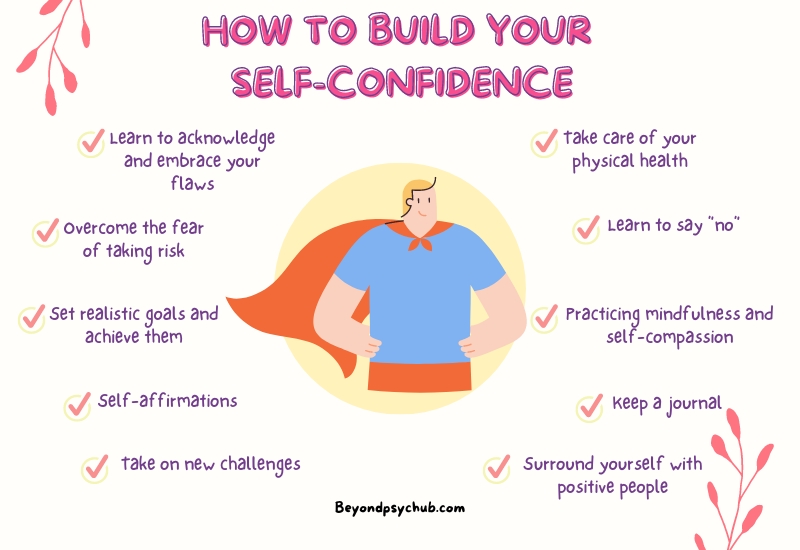How To Build Confidence With Women

The quest for genuine connection and meaningful relationships is a fundamental human desire. Yet, for many, the path to building confidence in approaching and interacting with women feels fraught with anxiety and uncertainty. This article aims to dissect the nuances of confidence-building, offering actionable strategies grounded in psychological principles and societal understanding.
This exploration delves into practical steps, focusing on internal shifts in mindset and tangible behavioral changes. It's not about superficial tricks or manipulative tactics, but about fostering genuine self-assurance that radiates outwards. The goal is to equip individuals with the tools to approach interactions with authenticity and respect.
Understanding the Roots of Insecurity
Confidence, or lack thereof, often stems from deep-seated beliefs about oneself. These beliefs are shaped by early childhood experiences, societal conditioning, and past relationship dynamics.
Negative self-talk, fueled by these experiences, can create a self-fulfilling prophecy of inadequacy. It's crucial to identify and challenge these negative thoughts through cognitive restructuring techniques, a cornerstone of cognitive behavioral therapy (CBT).
According to the American Psychological Association, CBT helps individuals identify and change negative thinking patterns. It emphasizes the importance of replacing negative thoughts with more realistic and balanced ones.
Building Internal Confidence
Self-Acceptance and Self-Compassion
A vital step is practicing self-acceptance. This involves acknowledging one's strengths and weaknesses without harsh judgment.
Cultivating self-compassion, treating oneself with the same kindness and understanding one would offer a friend, is equally important. Kristin Neff, a leading researcher on self-compassion, emphasizes its role in reducing anxiety and increasing resilience.
Setting Achievable Goals
Setting small, attainable goals is a powerful way to build momentum and reinforce positive self-perceptions. These goals can be as simple as striking up a conversation with a stranger or joining a social group.
Celebrating these small victories reinforces a sense of accomplishment and builds self-efficacy. This gradual process fosters a sense of control and competence in social situations.
Developing Personal Interests and Hobbies
Having diverse interests and hobbies enhances self-esteem and provides conversation starters. Engaging in activities that bring joy and fulfillment makes one a more interesting and engaging individual.
According to a study published in the Journal of Positive Psychology, pursuing hobbies is associated with increased happiness and well-being. This intrinsic fulfillment naturally boosts confidence and attractiveness.
Developing External Confidence
Improving Communication Skills
Effective communication is crucial for building rapport and establishing connection. This involves active listening, paying attention to body language, and expressing oneself clearly and respectfully.
Taking a communication course or practicing with friends can significantly improve these skills. Focus on being present in the conversation and genuinely interested in what the other person has to say.
Practicing Approachability
Body language plays a significant role in conveying confidence and approachability. Maintaining eye contact, smiling genuinely, and having an open posture can make a positive first impression.
Research suggests that nonverbal cues account for a significant portion of communication. Projecting confidence through body language can make one appear more attractive and approachable.
Exposure Therapy: Facing Fears Gradually
For individuals with severe anxiety, exposure therapy can be a helpful technique. This involves gradually exposing oneself to social situations that trigger anxiety, starting with less challenging scenarios and progressing to more demanding ones.
This systematic desensitization helps reduce anxiety over time. Consult with a therapist or counselor to develop a personalized exposure therapy plan.
The Importance of Respect and Authenticity
Genuine confidence isn't about manipulation or playing games. It's about being authentic and respectful in one's interactions.
Treating women with respect, valuing their opinions, and engaging in meaningful conversations are essential. Remember that connection is built on mutual respect and understanding, not on superficial charm or deceptive tactics.
Authenticity is key, hiding your true self will never result in genuine connection.
Moving Forward: A Continuous Journey
Building confidence with women is not a destination but an ongoing journey of self-improvement and personal growth. It requires consistent effort, self-reflection, and a willingness to step outside one's comfort zone.
Embrace failures as learning opportunities and celebrate successes along the way. Remember that everyone is unique, and the path to confidence is different for each individual. Stay persistent and focus on becoming the best version of yourself.
By focusing on internal growth, developing communication skills, and approaching interactions with respect and authenticity, anyone can cultivate the confidence needed to build meaningful connections and relationships. The journey begins with self-acceptance and a commitment to continuous self-improvement.




:max_bytes(150000):strip_icc()/how-to-build-self-confidence-5209231-FINAL-fe2e0265fbed407da074f1345163ba21.jpg)













